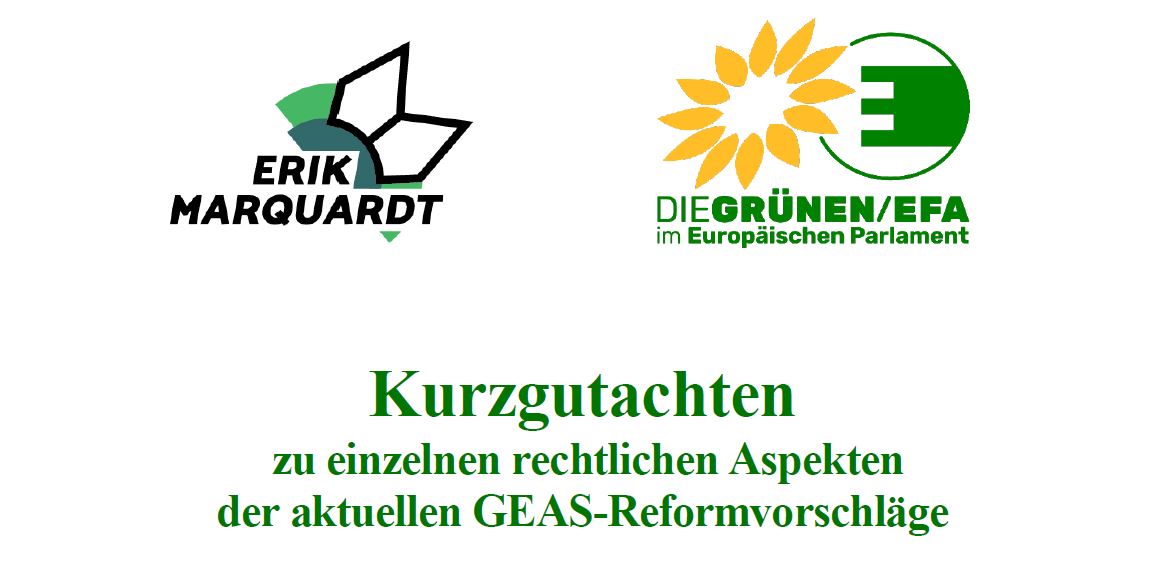Expert opinion: Council position on the CEAS does not meet human rights requirements

This short report analyzes by way of example why selected new regulations on the Common European Asylum System, as also advocated by the German government, do not meet the requirements of fundamental, human rights and EU law. The regulations on legal protection and the concept of safe third countries do not meet the requirements. A border procedure at the internal border is not possible; even at the external border, such a procedure is always accompanied by detentions and makes violations of fundamental rights and human rights almost unavoidable even beyond that point. You can find the short report here.
The main results at a glance
- Insofar as an area of Union law is harmonized, the Federal Constitutional Court also measures Member State conduct against the Charter of Fundamental Rights of the European Union and not against the Basic Law. The monopoly on the rejection of Union law rests with the European Court of Justice.
- The fact that the planned appeal against the rejection of an application for international protection in the new draft of the Asylum Procedure Regulation does not have any suspensive effect violates the provisions of Article 13 ECHR and Article 47 of the Charter of Fundamental Rights of the European Union, which in the established case law of the European Court of Human Rights and the Court of Justice of the European Union require an appeal with automatic suspensive effect.
- The application of the safe third country concept must always follow a case-by-case assessment.
- A third country cannot be considered safe if guarantees guaranteed by the Geneva Convention on Refugees (Refugee Convention) apply only in a partial area, because the Convention requires precisely the gradual inclusion in the legal system of the signatory state in the entire territory of the state in the sense of the principle of equal treatment and requires in particular the freedom of movement in its entire territory.
- A correspondence of the CSF standards alone "in substance" in the classification of a safe third country is incompatible with the protection concept of the CSF, since the status rights under the CSF are legally mandatory and may not be undercut.
- In the border procedure, Member States are fully bound by fundamental and human rights, because they exercise effective control over persons.
- Both the screening procedure and the border procedure presuppose a refusal of entry because they must take place before entry. Such a refusal of entry is not possible at the internal border, which is why the non-entry fiction and with it the border procedure are also excluded.
- A border procedure necessarily takes place before entry, so the possible places where such a procedure can take place are limited. Therefore, procedures must take place in a narrowly localized area, so that border procedures without deprivation of liberty (= detention) should not be possible according to the case law of the Court of Justice of the European Union and the European Court of Human Rights. The regulatory system of the Common European Asylum System is also based on this.
- Even where border procedures do not directly violate fundamental and human rights, they make rights violations particularly likely because basic standards such as legal protection and humane accommodation cannot be met in camps at the external border.
- The EU's Fundamental Rights Agency also considers the human rights challenges in external border camps "almost insurmountable."
- Effective legal protection is, according to the Court of Justice of the European Union and in the light of the Charter of Fundamental Rights of the European Union, on the one hand necessary for the protection of the individual, and on the other hand also necessary to ensure the functioning of the system and to guarantee a legally correct implementation of the legal requirements - and as a result the rule of law.